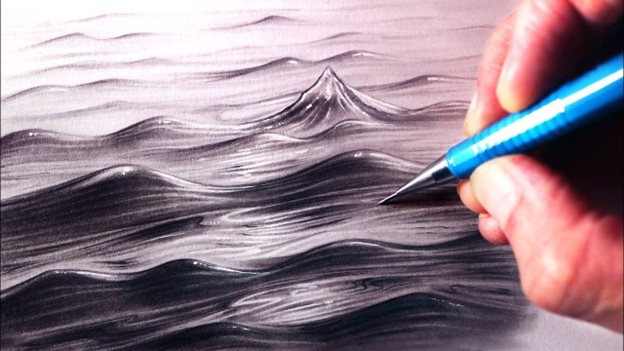Drawing on water
Dan Khodabakhsh, MD Jan 9, 2024
Sometimes it seems that the palliative cases that went particularly well are those that I have some of the most trouble remembering. Sure, it could be the flipside of negativity bias and all the ingenious ways I am able to re-live the times in my life I have labeled failure, but perhaps there is something more here. What does going “really well” mean anyways in our line of work? How do cases “going well” relate to sustainability and avoiding burnout?
Sorry if you were hoping for an answer, I don’t have it. What I can share is that when I judge a palliative discussion as “good,” this little slice of the universe now feels a bit more “complete.” There is a certain infection point where the hearts and minds of the people involved arrive in the present moment and its own set of conditions. This may involve a particularly difficult diagnosis or prognosis. But it extends beyond what factors make a patient and more into personhood and identity.
So often it is something from a person’s or family’s past that is casting a shadow across the landscape of now. And why wouldn’t it, why wouldn’t some core memory of our relationship with a loved one appear in times of uncertainty and loss. Our role as PC providers is not to block those memories, but rather to allow space for other actors such as forgiveness, gratitude, and fulfilment to dance and improvise together on the stage of awareness.
One of the commandments of Palliative care is “thou shall meet people where they are.” But I realized I can only adhere to this wisdom when I show up, on time, and in a particular way. It is when I am not attached to role, nor agenda, nor outcome. These discussions have qualities not unlike meditation: intentional, intimate and ephemeral. Palliative care meetings elicit strong emotions in everyone, including we as providers, but the more present I am with them in real-time, the less of an imprint they seem to make and the fewer seeds of rumination I seem to take home.
Sports fans say, “leave it all out on the field.” I always thought it meant to do your best so that you have no regrets about your performance. Now my hearing of it is more like a riff off Ram Dass’s mantra, “be here now…so you won’t be here later.”